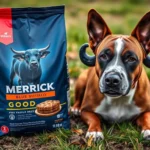
Introduction
When it comes to dog nutrition, understanding what is safe and healthy for our canine companions is crucial. Pet owners often find themselves questioning whether certain human foods can be included in their dogs’ diets. One common query is: can dogs eat veggie straws? This article dives into the safety, nutritional value, and potential risks associated with veggie straws for dogs.
Understanding Dog Nutrition
The Basics of Canine Diet
A well-balanced diet for dogs includes essential nutrients that contribute to their overall health and well-being. The primary nutrients necessary for dogs are:
- Proteins: Vital for muscle growth and repair.
- Fats: Provide energy and support cell structure.
- Carbohydrates: Offer a quick energy source.
- Vitamins and Minerals: Essential for various bodily functions, including immune response and bone health.
Dog food comes in various forms, including dry kibble, wet food, raw diets, and homemade meals. Each type has its benefits, but it is essential to choose high-quality options that meet your dog’s specific needs.
Common Human Foods Safe for Dogs
Many human foods can be safely shared with dogs, adding variety and nutrition to their diets. Some common dog-friendly foods include:
- Carrots: Low in calories and high in fiber.
- Blueberries: Packed with antioxidants.
- Peanut Butter: A tasty source of protein (ensure it’s xylitol-free).
Incorporating these foods can provide additional vitamins and minerals, making mealtime more enjoyable for your pet.
Foods to Avoid
While many human foods are safe, some are toxic to dogs and should be strictly avoided. These include:
- Chocolate: Contains theobromine, which is harmful to dogs.
- Grapes and Raisins: Can cause kidney failure.
- Onions and Garlic: May damage red blood cells.
Always check food labels and ingredients to ensure they don’t contain harmful substances.
What Are Veggie Straws?
Ingredients Typically Found in Veggie Straws
Veggie straws are marketed as a healthier snack alternative, but they often contain ingredients that could be problematic for dogs. Typical ingredients include:
- Potato Starch: Often used as a base.
- Vegetable Powder: Provides some color and flavor.
- Seasonings: May include salt or artificial flavors.
It’s essential to be aware of potential allergens, such as specific vegetable powders that could trigger sensitivities in some dogs.
Nutritional Profile of Veggie Straws
Analyzing the nutritional profile of veggie straws reveals they are primarily made up of:
- Calories: Generally low in calories, but can add up quickly.
- Fat: Varies by brand, may contain unhealthy fats.
- Carbohydrates: High in carbohydrates but low in fiber.
Additionally, veggie straws often lack significant vitamins and minerals, making them less nutritionally beneficial than whole foods.
Can Dogs Eat Veggie Straws?
Safety Considerations
When considering whether dogs can eat veggie straws, safety is paramount. While a few stray pieces may not cause harm, moderation is key. Veggie straws are not designed for dogs and do not provide the essential nutrients they need.
Potential Risks
Feeding veggie straws to dogs can pose several risks:
- Choking Hazards: The texture can make them a choking risk, especially for small dogs.
- High Sodium Content: Many brands contain high levels of salt, which can lead to sodium ion poisoning in dogs.
- Artificial Ingredients: Preservatives and flavorings may not be suitable for canine consumption.
Digestive issues, such as diarrhea or upset stomach, can also arise from consuming these snacks.
Alternatives to Veggie Straws
If you’re looking for healthier snack options for your dog, consider these alternatives:
- Carrot Sticks: Crunchy and sweet, great for chewing.
- Sweet Potato Chips: Nutrient-rich and satisfying.
- Homemade Veggie Treats: You can easily make snacks using dog-friendly ingredients.
These options are not only safer but also provide a range of nutrients beneficial for your dog’s health.
Vet’s Perspective on Feeding Dogs Human Snacks
Expert Opinions
Veterinarians typically advise against feeding dogs human snacks regularly. While some human foods are acceptable, many processed snacks, including veggie straws, lack the nutritional value dogs need. It’s always best to consult with your veterinarian before introducing new foods into your dog’s diet.
Case Studies and Anecdotes
There have been numerous reports from pet owners regarding their dogs’ reactions to veggie straws and similar snacks. Some dogs have experienced digestive upset after consuming them, while others have shown no adverse effects. Each dog is unique, and their reactions may vary based on their health, size, and dietary habits.
Lessons learned from these cases highlight the importance of caution and moderation when it comes to feeding dogs human snacks.
Conclusion
In summary, while the question can dogs eat veggie straws may evoke curiosity, the answer is not straightforward. While they may not be immediately harmful in small amounts, veggie straws are not a suitable snack for dogs due to their lack of nutrients and potential risks. Always prioritize a balanced diet tailored to your dog’s needs and consult with a veterinarian before introducing new foods.
FAQs About Dog Nutrition
Can dogs eat other types of snacks?
Yes, many other snacks are safe for dogs, including plain popcorn, apple slices (without seeds), and certain low-sodium commercial dog treats. Always ensure they are free from harmful ingredients.
How to read dog food labels?
When reading dog food labels, look for a named protein source (e.g., chicken, beef) as the first ingredient, check for wholesome grains, and avoid foods with fillers, artificial colors, and preservatives.
What are the signs of food allergies in dogs?
Signs of food allergies may include itching, skin irritations, gastrointestinal upset, or ear infections. If you notice these symptoms after introducing new foods, consult your veterinarian.
Is it safe to give dogs leftovers?
It depends on the leftovers. Some human foods are safe for dogs, but others can be harmful. Avoid giving them spicy, fatty, or seasoned foods, and consult your vet for guidance.
By understanding your dog’s dietary needs and being cautious about what you feed them, you can promote a healthy, happy life for your furry friend. Always prioritize their well-being and make informed choices regarding their nutrition.









